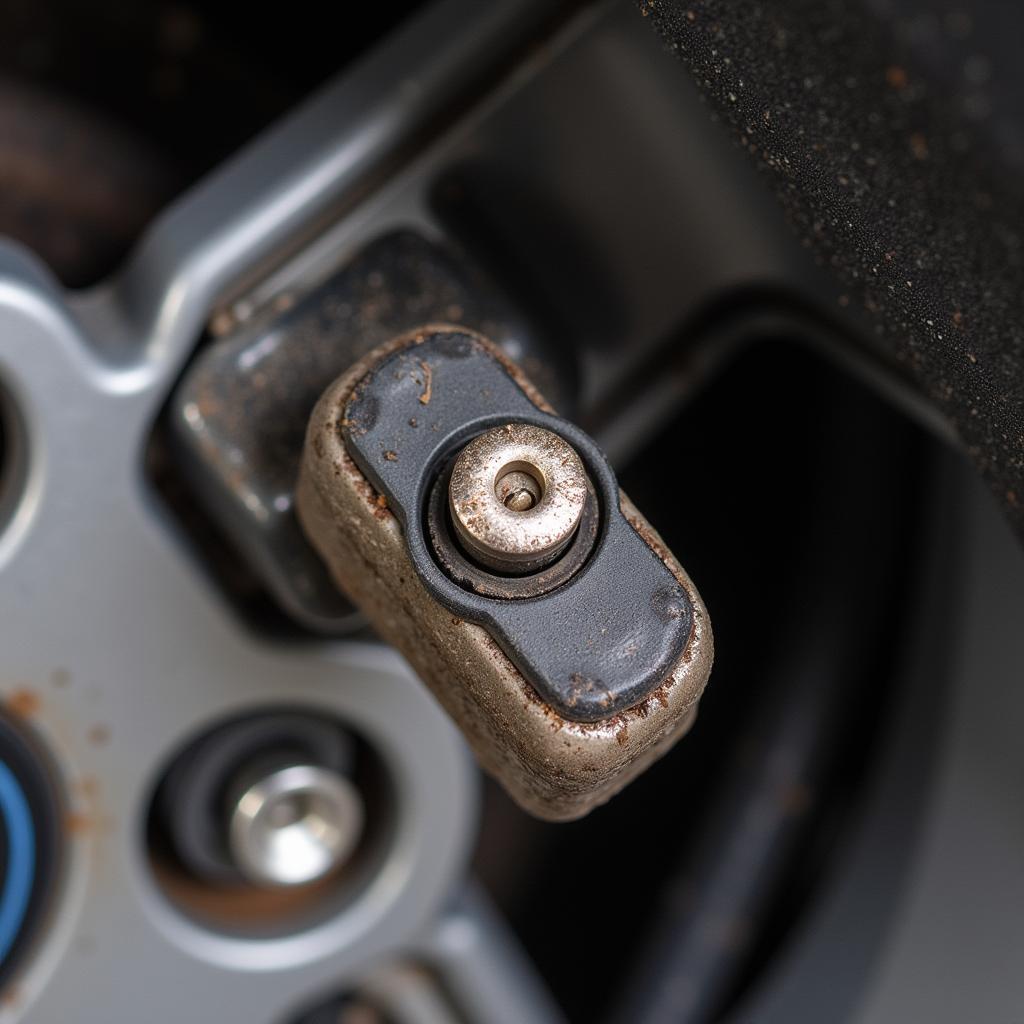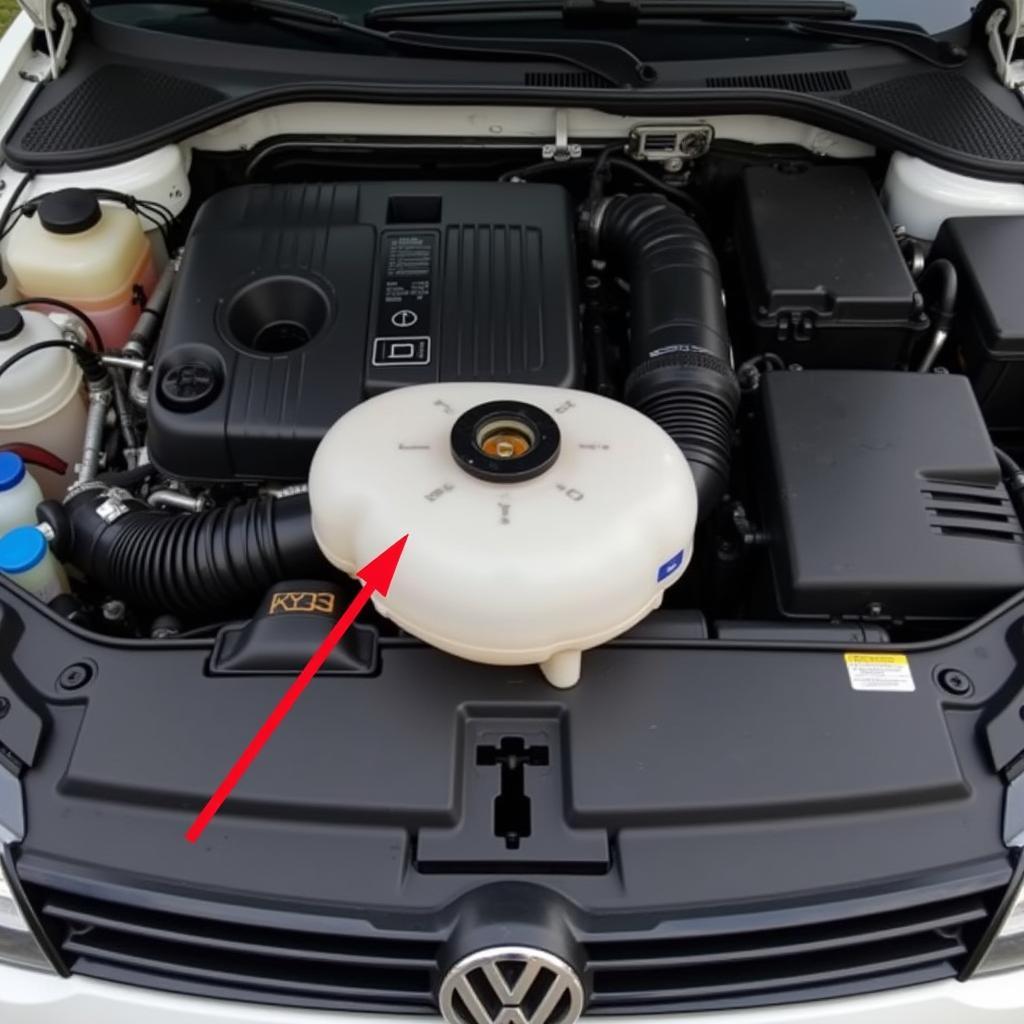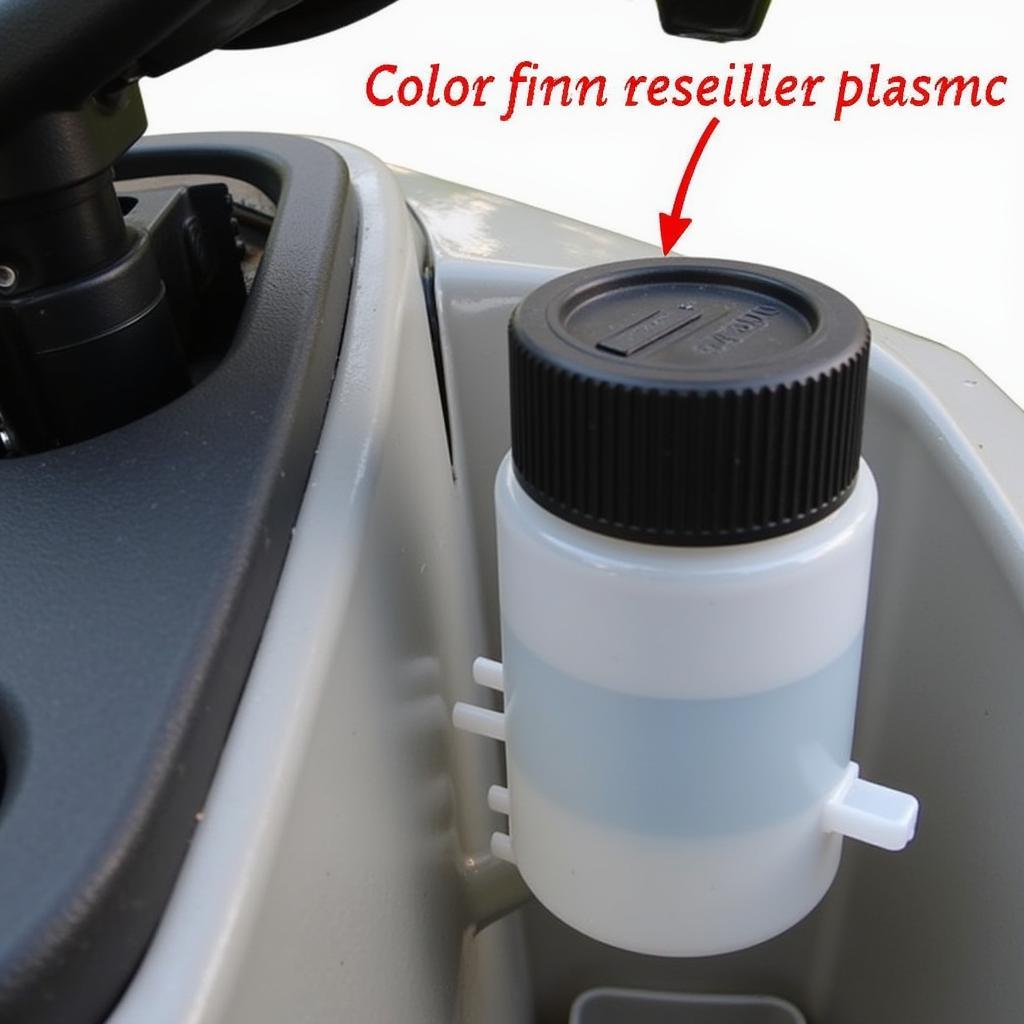The brake pad warning light on your VW Golf 5 is a crucial safety feature designed to alert you to potential issues with your braking system. Seeing this light illuminate on your dashboard can be concerning, but understanding its meaning and taking appropriate action can help ensure your safety and prevent further damage to your vehicle.
This comprehensive guide will delve into the common causes of the VW Golf 5 brake pad warning light, how to diagnose the problem, and the steps involved in addressing it.
What Triggers the Brake Pad Warning Light?
The brake pad warning light is connected to a sensor embedded within your brake pads. This sensor is a simple circuit that is either complete or broken. When your brake pads wear down to a certain level, the sensor is exposed and makes contact with the brake rotor, breaking the circuit and triggering the warning light on your dashboard.
Common Causes of a VW Golf 5 Brake Pad Warning Light
While worn brake pads are the most common culprit, several other factors can cause the brake pad warning light to turn on in your VW Golf 5:
- Worn Brake Pads: This is the most frequent cause. As your brake pads wear down with use, the sensor will eventually make contact with the rotor, triggering the warning light.
- Damaged Brake Pad Sensor: The sensor itself can become damaged or worn out over time. A faulty sensor may not accurately detect the brake pad thickness, leading to a false warning.
- Low Brake Fluid Level: Brake fluid is essential for transferring hydraulic pressure from the master cylinder to the brake calipers, which activate the brakes. If the brake fluid level is low, it could indicate a leak in the system or excessively worn brake pads, both of which can trigger the warning light.
- Electrical Issues: In some cases, a short circuit or wiring problem within the brake pad sensor system can cause the warning light to illuminate even if the brake pads and sensor are in good condition.
 VW Golf Brake Pad Sensor
VW Golf Brake Pad Sensor
Diagnosing the Problem: Steps to Take
If your VW Golf 5 brake pad warning light comes on, it’s essential to diagnose the cause promptly:
- Check Your Brake Pads: Visually inspect your brake pads through the spaces between the wheel spokes. If the pad material is less than 1/4 inch thick, they are likely due for replacement.
- Inspect the Brake Pad Sensor: Examine the brake pad sensor for any signs of damage, such as cuts, fraying, or corrosion. If the sensor is damaged, it will need to be replaced.
- Check the Brake Fluid Level: Locate the brake fluid reservoir under the hood. The reservoir typically has a translucent body with minimum and maximum markings. Ensure the fluid level is within the specified range.
- Consult a Professional Mechanic: If you’re unable to identify the issue or are uncomfortable working on your vehicle’s braking system, consult a qualified mechanic who specializes in VW vehicles. They have the expertise and tools to diagnose and address the problem safely and effectively.
 VW Golf Brake Fluid Reservoir
VW Golf Brake Fluid Reservoir
What to Do When the Brake Pad Warning Light Comes On
- Don’t Panic: While the warning light indicates a potential issue with your brakes, it doesn’t necessarily mean you’re in immediate danger.
- Reduce Speed and Drive Cautiously: Be mindful of your surroundings and avoid sudden braking or acceleration.
- Pull Over When Safe: As soon as it is safe to do so, pull over to a safe location and assess the situation.
- Address the Issue: If you’re confident in your abilities, you can try to diagnose and fix the problem yourself. However, if you’re unsure, it’s always best to consult a qualified mechanic.
VW Golf Brake Pad Replacement and Resetting the Warning Light
If worn brake pads are the culprit, replacing them is crucial. This involves removing the old pads, installing new ones, and often replacing the brake pad sensor as well.
After replacing the brake pads and sensor, the warning light should go off automatically. However, in some cases, you may need to manually reset the light using a diagnostic tool.
Ignoring the Warning Light: The Risks
Ignoring the brake pad warning light can lead to serious consequences:
- Reduced Braking Performance: Driving with worn brake pads significantly reduces your vehicle’s braking ability, increasing the risk of accidents.
- Damage to Brake Rotors: If the brake pads wear down completely, the metal backing plates can make contact with the rotors, causing severe damage that can be expensive to repair.
- Increased Repair Costs: Addressing brake issues early on is always more cost-effective than ignoring them and facing more significant repairs down the line.
Preventative Maintenance: Keeping Your Brakes in Top Condition
Regular brake maintenance is crucial for ensuring optimal braking performance and safety. Consider these preventative measures:
- Adhere to the Recommended Maintenance Schedule: Consult your VW Golf 5 owner’s manual for the recommended brake inspection and maintenance intervals.
- Listen for Unusual Noises: Screeching, grinding, or squealing sounds when applying the brakes can indicate worn brake pads and should be addressed immediately.
- Be Mindful of Your Driving Habits: Aggressive driving with frequent hard braking can accelerate brake pad wear.
Conclusion
The brake pad warning light on your VW Golf 5 is a vital safety feature that should never be ignored. By understanding its meaning, taking prompt action to diagnose the issue, and addressing it appropriately, you can ensure the safety of yourself, your passengers, and other road users. Regular brake maintenance and being attuned to your vehicle’s braking system can go a long way in preventing costly repairs and ensuring optimal performance.
“Remember, your brakes are one of the most critical safety systems in your car,” says master VW mechanic, Hans Schmitt. “Regular checks and timely maintenance are the best way to ensure they are always in optimal condition.”
FAQ
Q: Can I drive my VW Golf 5 with the brake pad warning light on?
While it’s not advisable to drive any significant distance with the brake pad warning light on, you can carefully drive a short distance to a safe location or a mechanic’s workshop.
Q: How much does it cost to replace brake pads on a VW Golf 5?
The cost of brake pad replacement varies depending on factors such as labor rates and the type of brake pads used. On average, you can expect to pay between $150 and $300 per axle.
Q: How long do VW Golf 5 brake pads last?
Brake pad lifespan varies greatly depending on driving style and conditions. However, most brake pads last between 30,000 and 70,000 miles.
Q: Can I replace just the brake pads, or do the rotors need to be replaced too?
If your rotors are within specifications and not damaged, you can typically replace just the brake pads. However, if your rotors are worn beyond a certain thickness or have deep grooves, they will also need to be replaced or resurfaced.
Q: What happens if I ignore the brake pad warning light for too long?
Ignoring the warning light for an extended period can lead to severe damage to your braking system, including worn-out rotors, caliper damage, and even brake failure, putting you and others at risk.

